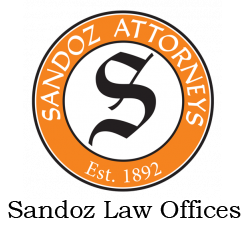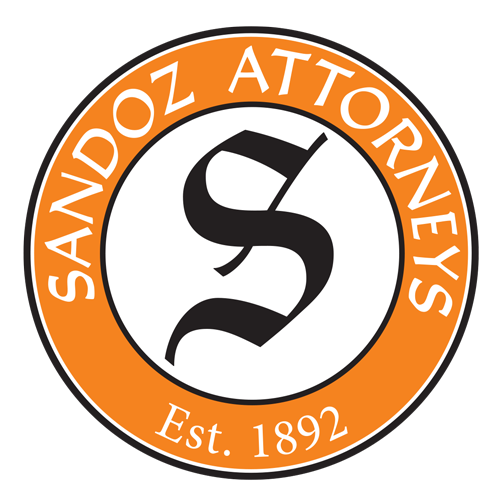Follow Us x
What to Know About Bankruptcy
Drowning in Debt ... Sleepless Nights ... Creditors Calling ... Wages Garnished ... Vehicle Seized ... Home Foreclosures ... Lawsuits Filed Against You ... Having Trouble Getting Through Each Day...
- BANKRUPTCY MAY BE YOUR OPTION!
At Sandoz Law Offices, we understand how frustrating it is when you are being called, harassed, and sent mail from creditors seeking payment, which you know that you cannot make.
If you are stuck dealing with such debt-related issues, you may have more options than you think! Sandoz Law Offices offers more than 100 years of experience helping clients find a way to solve their financial problems.
We understand the importance of not missing work and offer accommodating hours - including appointments after 5:00pm and on Saturdays.
So if you are struggling with the daily frustrations of excessive debt - contact us at 337-942-8956 Ext. 224 - for a FREE consultation!
Chapter 7 or Chapter 13?
I. Chapter 7: Liquidation Bankruptcy
A) What is a Chapter 7?
- A Chapter 7 is a liquidation form of bankruptcy.
- It's a quick way to cancel the majority, if not all, of your debts.
- A bankruptcy trustee is appointed to represent your creditors. His/her job is to take some of your property, sell it, and use the money to pay your creditors.
- If your income is above a certain amount, you may not qualify for a Chapter 7.
B) What are the advantages/disadvantages of a Chapter 7 Bankruptcy?
- Creditors are prevented from collecting debts.
- Creditors cannot call, write, nor file lawsuits, garnishments, or foreclosures.
- Most of your debts are cancelled. There are certain debts that may not get cancelled (i.e. student loans, IRS and State taxes, and alimony and child support).
- You are unable to keep certain property.
- You must meet certain requirements in order to qualify for a Chapter 7.
- A portion of your income tax refund may have to be turned over to the trustee.
- The filing of your Bankruptcy may be published in the local newspaper (It is public information).
- You get a fresh start; you are not burdened by the old debts anymore.
- A Chapter 7 will be on your credit record for ten years.
C) Three things can happen to your property in a Chapter 7:
- The trustee may take it.
- The creditors may take it
- You may be able to keep it.
D) Generally, in a Chapter 7, you are allowed to keep:
- Your house (if there is not more than $35,000 of equity in the home, and if you are current on the monthly mortgage payments),
- One vehicle (if there is not more than $7,500 of equity in the vehicle),
- Your clothes,
- Your 401K or retirement,
- Your Wedding Rings,
- Your Guns,
- Your equipment/tools to run your business, and
- Your furniture and household items.
II. Chapter 13: Personal Reorganization
A) What is a Chapter 13?
- A Chapter 13 is like a debt consolidation, where one monthly payment is made. Chapter 13 is for individuals/couples with regular income, who want to reorganize. A budget and a plan are made to pay creditors.
- A Chapter 13 is for people with regular income who do not qualify for a Chapter 7, or for individuals who want to keep all or most of their assets (including their home and vehicles).
- A Chapter 13 is flexible, and may be adjusted to your needs. Many Chapter 7, bankruptcies have been filed when there was no need to; a Chapter 13 would have been better. When a Chapter 13 bankruptcy is filed, an automatic stay (like an injunction) occurs.
- This automatic stay will block any creditor from taking any step to collect debts. Therefore, creditors cannot call, write, nor file lawsuits, garnishments, or foreclosures.
- The Chapter 13 plan will cover a 3-year (minimum time) to 5-year (maximum time) period. Once your budget and plan are approved by the bankruptcy judge, a portion of your monthly income is given to a bankruptcy trustee, who pays your creditors.
- Chapter 13 plans may not have to pay 100% of your debts. Your plan may pay all or a percent of your debts. The payment is based on the amount of assets that you own and that you want to keep, your living expenses, your monthly income, and the debts owed.
- If you can't pay 100% of the debts, you may only pay a percentage; the remaining unpaid balance is canceled.
B) What are the advantages of Chapter 13?
- Delinquent payments on your home can be made: Delinquent payments on your home must be made within a reasonable amount of time.
- All or most of your assets can be saved: You may keep certain assets (most household items, vehicles, and 401K retirements), if they are not mortgaged. Other items, which are mortgaged can be kept if you can continue to pay for them.
- Unwanted collateral (mortgaged property) can be given back to the creditor: Mortgaged assets (property put up as collateral for a debt), which you do not wish to keep or cannot afford may be given back to the creditor, who has a lien or a mortgage on that property. A credit (the value of the property) will be given to reduce the amount of the debt
- Co-signers and endorsers cannot be sued: Co-signers and endorsers are protected in Chapter 13. Upon the filing of the Chapter 13, they cannot be sued. This allows time to make a plan to pay those creditors. However, the endorsers and co-signers may have to pay a portion of the debt. If they refuse, a lawsuit may be filed against them.
- Consolidate payments without further borrowing: One (1) monthly payment is made to the Chapter 13 trustee. No further borrowing is needed, nor permitted. The trustee receives payment and pays creditors.
- Creditors are prevented from collecting debts: When a Chapter 13 bankruptcy is filed, the automatic stay (like an injunction) goes into effect. This stops creditors from taking any step to collect debts. Creditors cannot call, write, nor file lawsuits, garnishments, nor foreclosures.
- Interest rates and monthly payments may be lowered on secured debts: When money is borrowed, a note and security agreement (mortgage) are signed. Under the terms of the note and mortgage, you agree to put up assets as collateral, pay a certain interest rate, and pay a monthly amount. A Chapter 13 may allow you to reduce the monthly payment, as well as the interest rate on these secured debts.
- Plan Payment time-lines: Payments can be flexible and can be made over a 3-year (minimum time) to 5-year (maximum time) period.
- No interest is paid on unsecured debts: No service charges, carrying charges, late charges, or interest are paid on unsecured debts in the Chapter 13 plan.
- Overdue taxes can be paid: Taxes are paid in the plan. Taxing authorities are prevented from seizing or garnishing things that you own.
C) What are the disadvantages of a Chapter 13?
- Predicting monthly income and monthly living expenses: It is difficult to predict monthly income and living expenses because of unemployment, cuts in salary, sickness, and unexpected expenses.
- There are certain debts that may not get cancelled, upon completion of your Chapter 13 plan. Examples are amounts still owed for student loans, taxes owed to the IRS and the State, and alimony/child support payments.
- The filing of your Bankruptcy may be published in the local newspaper (It is public information).
- You cannot borrow or use credit while in Chapter 13 without court approval.
- A Chapter 13 will be on your credit record for ten years.
- A wage assignment: The Chapter 13 trustee generally requires your employer to give a wage assignment for the plan payments to be sent directly to the trustee.
- You cannot modify the amount of your house note.
- You must turn over your Income Tax refunds for 3 years.
- You cannot incur new debt without court approval.
D) Life after Bankruptcy:
- Many people feel that when bankruptcy is filed, your life is over - you will never have credit or own anything again - you are basically finished! ... NOT TRUE ...
- One of the purposes of bankruptcy is to get a fresh start - to start life over! The difficult and painful bankruptcy is now behind you. And even though you've filed bankruptcy, you must continue to live and look toward the future.
- There are certain steps to take in order to repair the damage done by bankruptcy, but DO NOT roll over and die! You have a second chance at life - to start again - debt free! Make the most of it!


